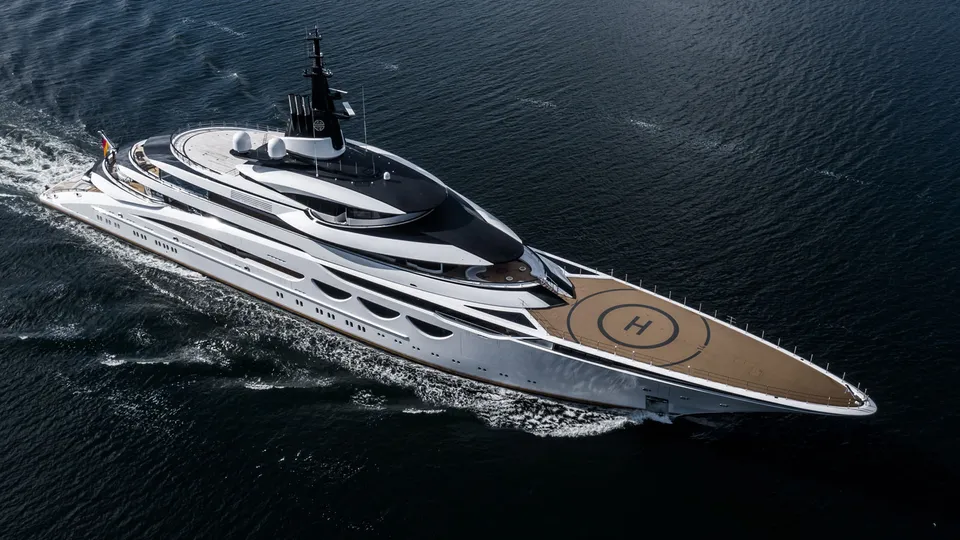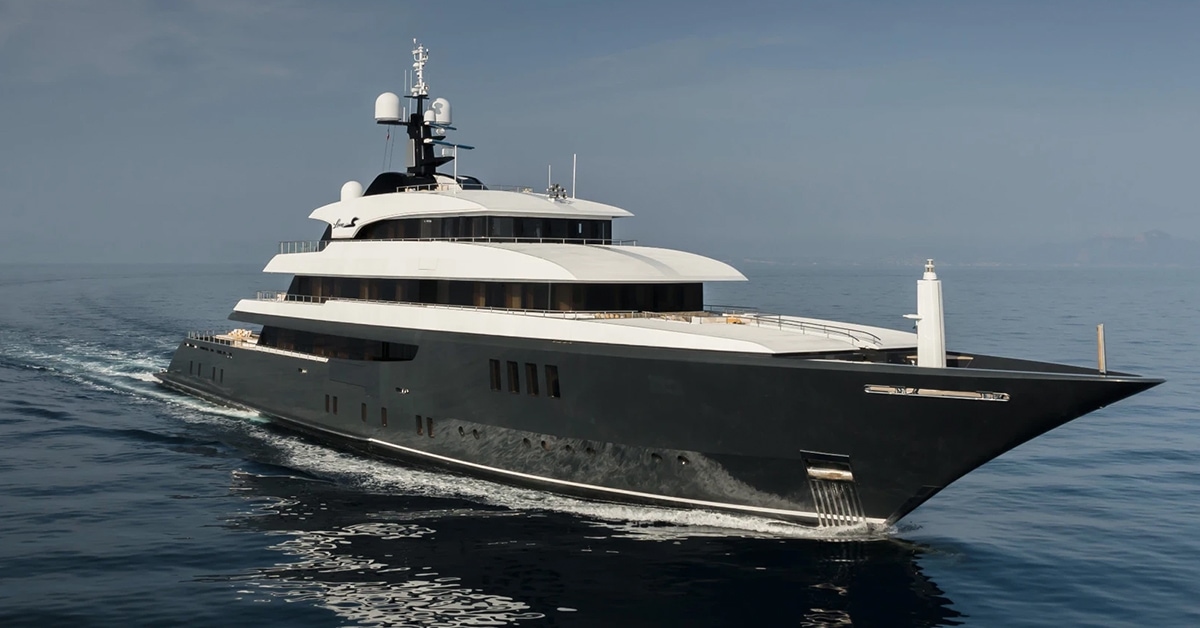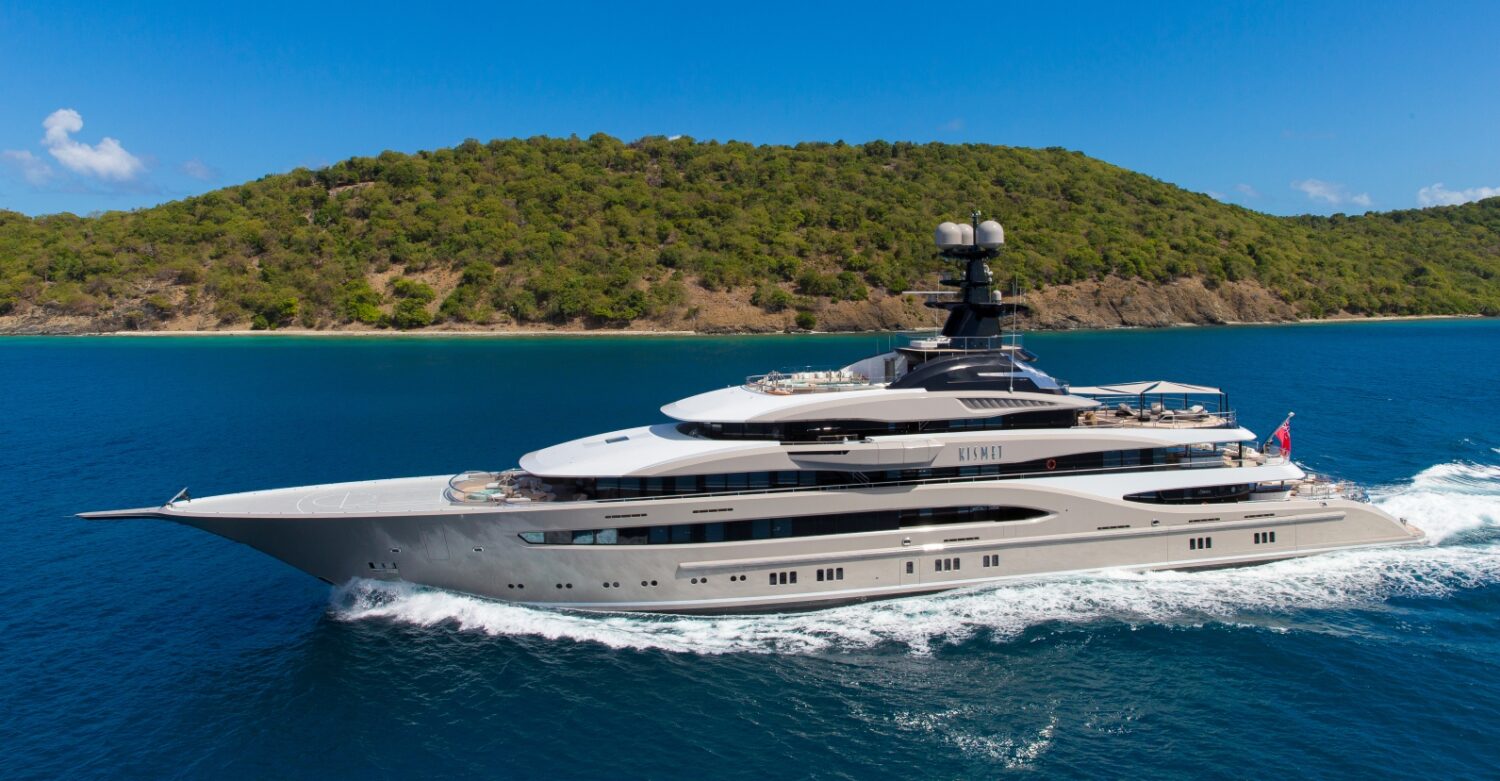
Owning a superyacht is one of life’s ultimate privileges, but many owners also explore the option of offering their vessel for charter. The prospect of generating income and sharing the yachting lifestyle can be appealing, yet chartering is not without its challenges. If you are considering chartering your yacht, it is essential to understand both the opportunities and the responsibilities that come with it.
From financial planning and seasonal demand to regulatory obligations, there are important factors to weigh before making a decision. At SuperYachtsMonaco, we help owners navigate these considerations, providing expert guidance to ensure they are fully prepared for every aspect of the charter process.
Pros of Chartering Your Yacht
Potential Revenue Generation
Perhaps the most tempting aspect of owning a charter yacht lies in its potential to generate revenue. By opening your yacht for commercial charters, you tap into a market of individuals seeking to take pleasure in yachting without the commitments of ownership. These customers’ rental payments can be a reliable source of income.
Tax benefits
Operating a commercial yacht charter business may come with attractive tax advantages depending on the country in which you’re doing business. These could encompass deductions for maintenance, operational costs, and even depreciation of the yacht, easing the financial burden.
Personal Enjoyment
Owning a yacht naturally brings personal pleasure, and sharing this experience with charter clients can enhance that joy. It’s an opportunity to showcase your investment while offering others a chance to experience the yachting lifestyle.
Networking Possibilities
Running a charter yacht business might help with networking within the tourism and yachting industry. Making connections with crew members and fellow professionals can foster collaborations, referrals, and a more robust business ecosystem.

Challenges of Chartering Your Yacht
There are obstacles on the way to charter yacht success that demand careful thought:
Initial Investment
Purchasing a yacht that may be commercially endorsed can require a large up-front financial commitment. Meeting the safety, luxury, and comfort requirements expected by charter clients can often mean a significant purchase price.
Operating Costs
The yacht’s ongoing expenses, including maintenance, insurance, dockage fees, crew salaries, and fuel, can have a significant impact on profitability. To handle these costs, careful financial planning and administration are essential.
Regulatory Compliance
One of the most challenging aspects of operating a commercial yacht charter business is navigating the regulatory environment. Careful attention is needed to ensure compliance with maritime safety standards, environmental laws, and local licensing requirements.

Seasonal Nature
Charter yacht businesses are frequently subject to seasonal demand fluctuations. High demand during peak vacation periods can be offset by lower demand during off-peak times, necessitating adaptable business strategies.
Marketing and Competition
For client acquisition, effective marketing of your charter yacht business is essential. Given how competitive the market is, investing in advertising efforts to set yourself apart from competitors is crucial.
Client Relations
Meeting the preferences and expectations of clients is a constant challenge. Excellent communication and attention to detail are necessary for providing exceptional service, which will result in positive reviews and repeat business.

Is It Worth Chartering Out Your Yacht?
The ultimate question, “Is it worth chartering out your yacht?” revolves around whether the rewards of charter yacht ownership outweigh the challenges. This hinges on your personal aspirations, financial capabilities, and willingness to manage complexities.
The business can be successful if you have a sincere passion for yachting, solid knowledge of the sector, and the necessary resources. Prerequisites include comprehensive cost and risk analysis, a strong business plan, and thorough market research.
As you navigate this area, utilising the knowledge of maritime experts, legal counsel, and business consultants can be extremely beneficial. Additionally, knowing the preferences of your target market and providing outstanding experiences will help your charter yacht business succeed.
The appeal of combining financial potential with personal passion makes owning a charter yacht an alluring prospect. However, it requires careful consideration, realistic expectations, and an unwavering commitment to delivering a premium experience.
For those prepared to embark on this exciting journey, chartering offers a unique blend of luxury, adventure, and business opportunity. At SuperYachtsMonaco, our team is here to guide you through every stage of the process, from compliance and marketing to client care and operational management. To learn more about the world of yacht ownership and chartering, we invite you to contact us directly and explore our blog for expert advice, industry updates, and inspiration.
FAQ’s
How much income can I expect from chartering my yacht?
Charter rates vary widely depending on the size of the yacht, the destination, and the time of year. Some yachts achieve tens of thousands of euros per week, while larger or more exclusive vessels can command several hundred thousand or even over a million euros weekly. The actual return will depend on usage, market demand, and efficient management.
Do yacht owners benefit from tax advantages when chartering?
In some jurisdictions, operating a yacht as a commercial charter vessel may allow owners to deduct expenses such as maintenance, insurance, and depreciation. However, tax rules differ from country to country, so it is always advisable to consult a qualified tax professional before making assumptions.
What upfront costs should I anticipate when preparing my yacht for charter?
Preparing a yacht for charter often involves investment in safety compliance, upgrades to guest facilities, crew certification, and marketing. The scale of these costs depends on the yacht’s current condition and the market it is aiming to enter.
How much do ongoing operating costs affect profitability?
Operating costs can be substantial and may include crew salaries, fuel, dockage fees, insurance, and regular maintenance. These expenses can quickly reduce net profits, which is why accurate financial planning is essential before entering the charter market.
What regulations must my yacht comply with to operate commercially?
Charter yachts must meet strict maritime safety standards, adhere to environmental rules, and hold the correct certifications and licences. Requirements vary depending on the flag state and the regions in which the yacht operates, making expert advice crucial.
How do seasonal fluctuations affect charter opportunities?
Charter demand tends to peak during the summer in the Mediterranean and the winter in the Caribbean, with quieter periods in between. While off-season charters may command lower rates, they can also offer advantages such as greater availability and flexibility for guests.
How can I effectively market my yacht to attract charter clients?
Successful marketing usually combines the expertise of a professional charter broker with digital exposure across specialist platforms and networks. High-quality photography, video, and a well-prepared brochure are also essential to make your yacht stand out.
How important is guest service in securing repeat bookings?
Exceptional service is vital. Delivering a memorable experience through attentive crew, well-prepared preference sheets, and seamless communication can transform first-time guests into loyal repeat clients.
Can SuperYachtsMonaco help me manage my yacht as a charter vessel?
Absolutely. At SuperYachtsMonaco, we offer comprehensive charter management services, including regulatory compliance, marketing, client liaison, and operational support. Our team ensures that every aspect of the charter process runs smoothly, maximising both owner satisfaction and guest experience.

